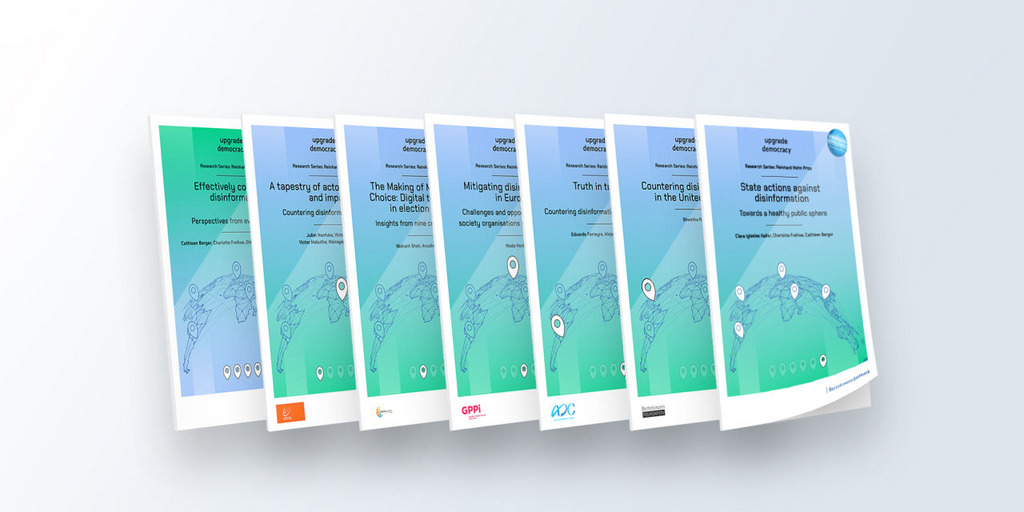“If the actors involved in the dissemination of disinformation narratives act in a coordinated manner, a successful effort to counter their attempts requires at least a similar coordination.”
(Eduardo Ferreyra and Alejandro E. Segarra, Asociación de Derechos Civiles, Argentina)
Today, we are publishing our findings in a series of 7 reports. Our partners summarise their findings in five regional reports: The Digital Asia Hub team (Hong Kong) explores nine country-level case studies from Asia, CIPESA (Uganda) sheds light on the relationships, attitudes, and patterns of actors in Africa, GPPi (Germany) looks at the landscape of civil society and private sector initiatives in Europe, the Bertelsmann Foundation North America (USA) takes a look at the troubling situation in the U.S. and Asociación de Derechos Civiles (Argentina) paints a multifaceted picture of the situation in Latin America. A sixth report examines government responses to disinformation and outlines the risks and potentials of various international approaches.
Report number 7 is intended to help our readers find their way around. Here, we compiled findings, trends, and illustrative examples from all six reports and analysed them structured along 14 relevant observations. From the technology-enhanced fact-checking approaches of Chequeado (Argentina) or Aos Fatos (Brazil), to the community-driven debunking of JamiiCheck (Tanzania) or the rapid response mechanism at Real411 (South Africa), to the thought-provoking media literacy trainings of Fact Shala (India) and Mafindo (Indonesia) – the range of innovative and instructive approaches is remarkable. So, if you want to know more about the differences and similarities of social media use, the role of civil society, the ambiguities of government responses, the influence of zero-rating or AI in election campaigns, start here - and then delve deeper into the individual regions.






